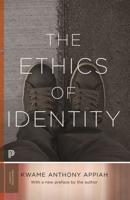Publisher's Synopsis
Excerpt from The Theory of Good and Evil, Vol. 2: A Treatise on Moral Philosophy
I shall deal first with the denial that even goods of the same kind are capable of quantitative measurement. I hardly know whether the question has ever been explicitly raised as to the higher goods - Morality, Culture and the like - but the possibility of quantitative measurement has certainly been explicitly denied with regard to pleasure. That is the first question therefore with which we shall have to deal.
The doctrine that pleasures cannot be summed, that there is no meaning in the idea of a sum of pleasures and that couse quently the hedonistic calculus is impossible and unintelligible, has long been maintained by a certain section of anti-utilitarian writers, among whom it will be enough to mention the late Prof. T. H. Green and Mr. Bradley. It must be confessed, however, that it is not very easy to extract from either of these writers the exact grounds or even the precise meaning of their con tention. Prof. Mackenzie in his Manual of Ethics and his Introduction to Social Philosophy has performed a real service by putting the doctrine into a form in which it is more easy to subject it to examination and criticism. In the present chapter, however, I shall not confine myself to what Prof. Mackenzie has advanced, as what appear to me the misconceptions which underlie his reasoning are widely diffused, and seem often to be assumed in the language of writers who have been less lucid and less explicit. My object is rather to get to the bottom of the misunderstanding than to criticize any particular writer; I do not therefore wish to be understood to hold Prof. Mackenzie responsible for every argument that I may criticize except where I expressly quote him.
About the Publisher
Forgotten Books publishes hundreds of thousands of rare and classic books. Find more at www.forgottenbooks.com
This book is a reproduction of an important historical work. Forgotten Books uses state-of-the-art technology to digitally reconstruct the work, preserving the original format whilst repairing imperfections present in the aged copy. In rare cases, an imperfection in the original, such as a blemish or missing page, may be replicated in our edition. We do, however, repair the vast majority of imperfections successfully; any imperfections that remain are intentionally left to preserve the state of such historical works.









